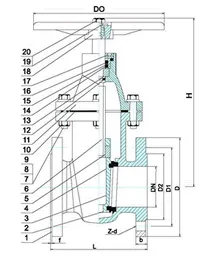Aug . 29, 2024 09:25 Back to list
High-Quality Ground Cable Wire for Safe Electrical Connections
Understanding Ground Cable Wire Importance and Applications
Ground cable wire plays a crucial role in electrical systems, providing safety and stability across various applications. This essential component ensures that electrical equipment and systems operate efficiently while minimizing risks associated with electrical faults.
Grounding, often referred to as earthing, is the process of connecting the electrical system to the ground (soil). The primary purpose of ground cable wire is to create a low-resistance path for electric current to flow safely into the ground in case of a fault. This can protect both the equipment and personnel from potential electric shock, short circuits, and electrical fires. By having a reliable ground, any stray or excess current generated due to faults can be redirected away from sensitive components and users.
Ground cables are typically made from copper or aluminum due to their excellent conductivity and durability. Copper is more commonly used due to its superior electrical and thermal conductivity, making it effective in minimizing resistance. Aluminum, although less conductive, is lighter and more cost-effective, making it a feasible alternative in certain situations. The choice of material largely depends on the specific application and environmental conditions.
Standard gauge sizes for ground cables vary depending on the specific requirements of the installation. For instance, larger gauge wires are used for heavy-duty applications, such as industrial machinery, while smaller wires may suffice for residential systems. The National Electrical Code (NEC) provides guidelines for sizing ground wires, ensuring that they can safely carry fault current without overheating.
ground cable wire

One of the key applications of ground cable wire is in residential electrical systems
. Ground wires are integrated into the electrical panels, appliances, and connected fixtures, ensuring that any potential faults are directed safely into the ground. This is particularly important in systems that are susceptible to surges, such as those caused by lightning strikes or power surges from the grid.In addition to residential use, ground cable wires are also vital in commercial and industrial settings. Factories, data centers, and large commercial buildings require robust grounding systems to protect sensitive equipment and ensure safety. In these environments, ground wires may connect to grounding rods, plates, or other grounding techniques to effectively dissipate electrical surges.
Moreover, in renewable energy installations, such as solar power systems, proper grounding is essential to avoid damage to both the panels and the inverter systems. Ground cable wires help to ensure that these systems function safely and effectively, protecting them from potential electrical faults.
In conclusion, ground cable wire is an indispensable component of modern electrical systems. Its primary function of providing a safe path for fault currents greatly enhances the safety and reliability of electrical installations across residential, commercial, and industrial applications. As we continue to embrace technological advancements and renewable energy solutions, the importance of effective grounding systems will remain a priority, ensuring that we can harness electricity safely and efficiently.
Share
-
Reliable Wafer Type Butterfly Valves for Every IndustryNewsJul.25,2025
-
Reliable Flow Control Begins with the Right Ball Check ValveNewsJul.25,2025
-
Precision Flow Control Starts with Quality ValvesNewsJul.25,2025
-
Industrial Flow Control ReliabilityNewsJul.25,2025
-
Engineered for Efficiency Gate Valves That Power Industrial PerformanceNewsJul.25,2025
-
Empowering Infrastructure Through Quality ManufacturingNewsJul.25,2025